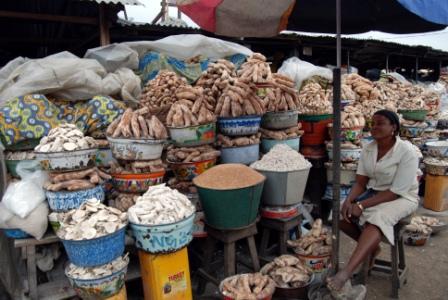Business
Our Intervention saved Nigeria N1.3 trillion import bill -CBN

The Central Bank of Nigeria (CBN) said its interventions in key products had saved the country N1.3 trillion import bill.
The CBN Deputy Governor, Corporate Services, Mr Edward Adamu made this known at the ongoing 28th Seminar for Finance Correspondents and Business Editors in Owerri on Tuesday.
The theme of the seminar is “Galvanising Development Finance and Monetary Policy For Growth”.
Represented by the Director, Corporate Communications Department, Mr Isaac Okorafor, Adamu listed the key products as rice, fish, sugar, and wheat.
He said the apex bank was determined and committed to improving domestic supply of these four commodities.
“As you are aware, the CBN increased its lending to the agricultural and manufacturing sectors.
“This is done through targeted intervention schemes such as the Anchor Borrowers’ Programme, Commercial Agricultural Credit Scheme and the Real Sector Support Facility.
“In particular, we sought to improve domestic supply of four commodities, rice, fish, sugar, and wheat which consumed about N1.3 trillion annually in our nation’s import bill,” he said.
The deputy governor said the CBN’s efforts at these development finance initiatives had helped to accelerate the actualisation of the Federal Government’s economic diversification programme.
He added that Diversifying the economic base presented a more sustainable and stable option.
“It is our conviction that focusing our developmental efforts on sectors with inherent potential for growth, employment and accretion to foreign reserves would enhance the fortune of the Nigerian economy.
The Central Bank of Nigeria (CBN), says there has been significant reductions in Nigeria’s annual Imports Bill.
Meanwhile, the CBN Deputy Governor, Corporate Services, Mr Edward Adamu made this known at the ongoing 28th Seminar for Finance Correspondents and Business Editors in Owerri on Tuesday.
The theme of the three-day seminar is “Galvanising Development Finance and Monetary Policy Growth”.
Represented by the Director, Corporate Communications Department, Mr Isaac Okorafor Adamu said there had also been an increase in non-oil exports.
“Our Development Finance interventions have helped to bolster agricultural production by removing obstacles faced by small holder farmers.
“We have also improved access to markets for farmers by facilitating greater partnership with agro-processors and industrial firms in the sourcing of raw materials.
“So far, the programme has supported more than 1.5 million farmers across all the 36 States of the country in cultivating 16 different commodities on over 1.4 million hectares of farmland.
“It has also supported the creation of over 2.5 million jobs across the agricultural value chain ” he said.
Adamu charged the media to play a critical role in conveying deeper understanding of the bank’s commitment to economic growth and development.
He said for instance, it was the bank’s game changing intervention in the rice value chain in Kebbi and other rice-producing states across the country that increased local production from 2.5 million tonnes in 2015 to 5.8 million tonnes in 2017.
The deputy governor said that the bank was also supporting cotton intervention with the inauguration of input distribution to 150,000 cotton farmers, cultivating 150,000 hectares in 23 states of the federation.
He said that currently, the cotton planted by these farmers had started yielding fruits, while some were ready for harvest and off-take.






